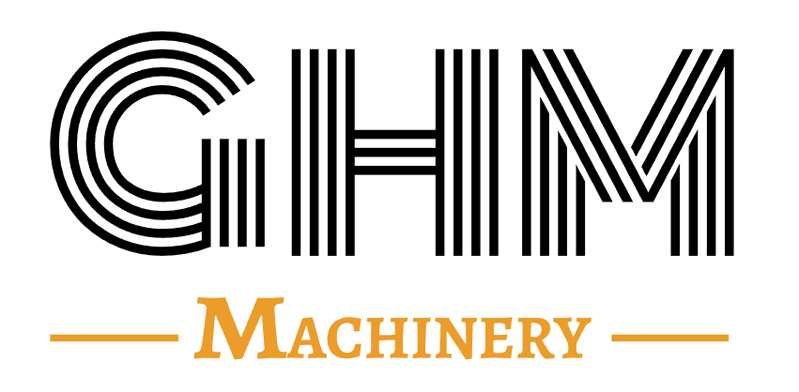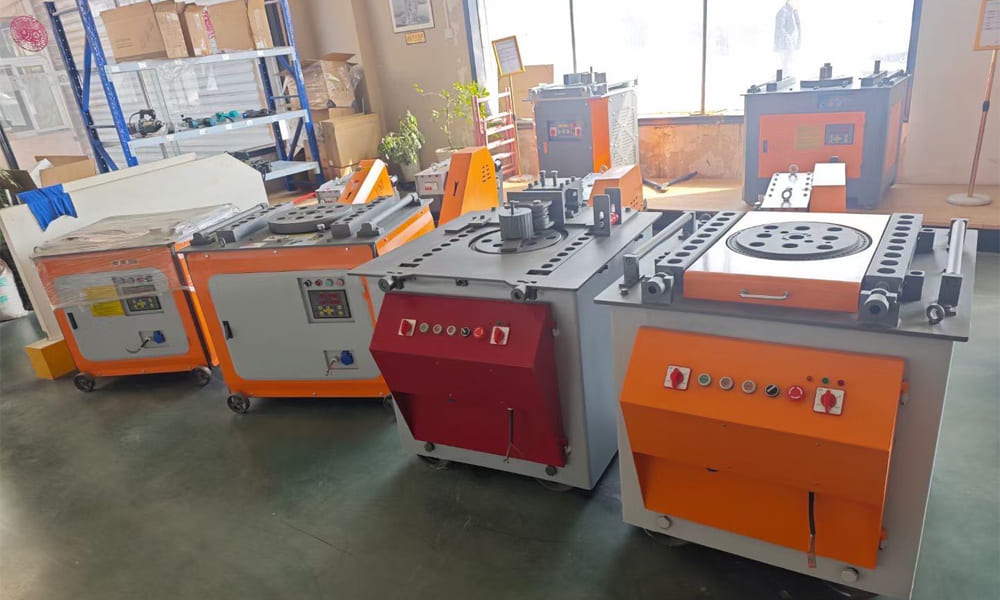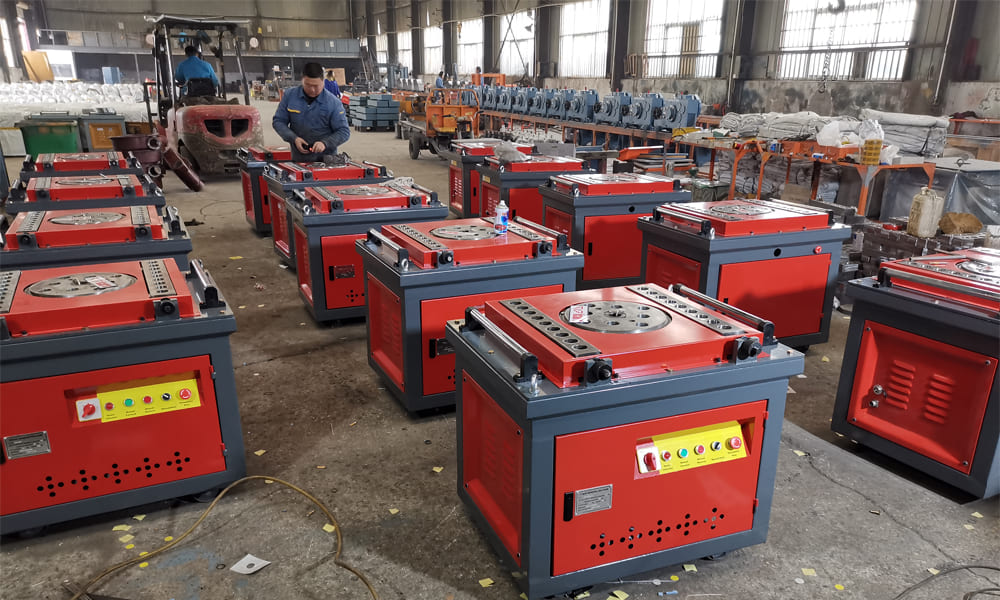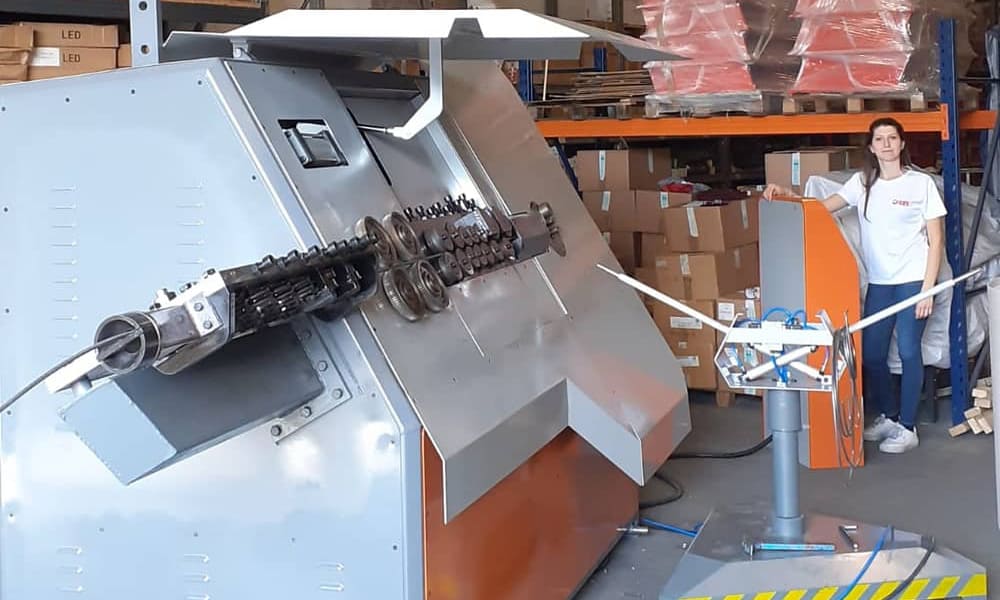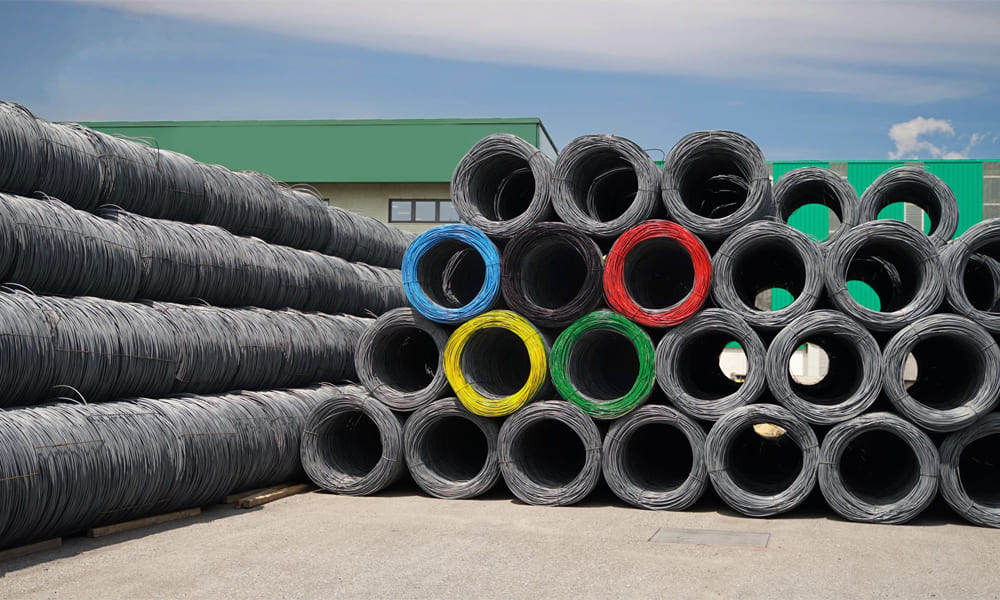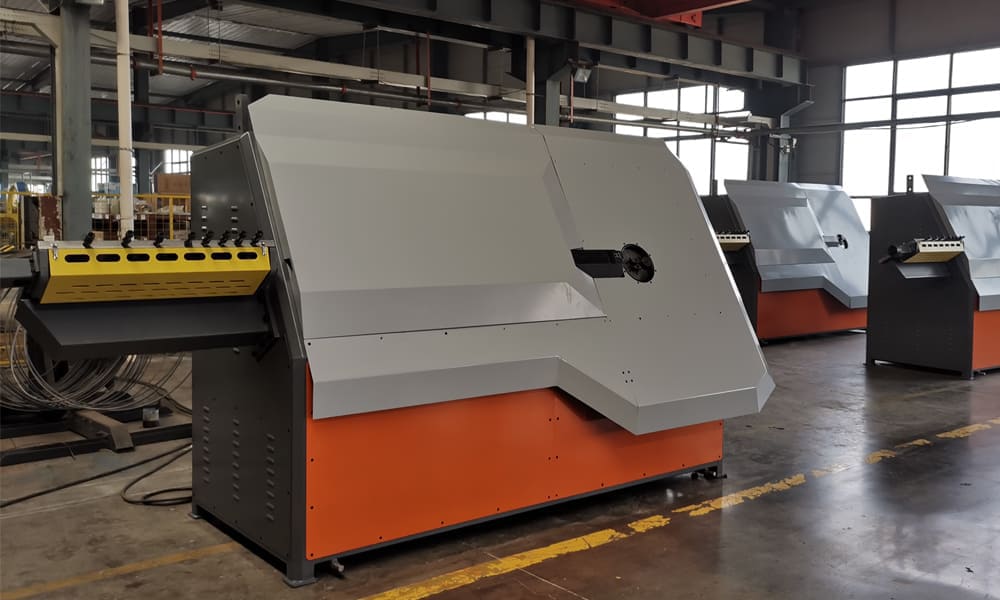Steel Rebar Bender is essential equipment on construction sites, facilitating the shaping and bending of steel bars used for reinforcing concrete structures. These machines come in various types, each suited for different operational needs and project scales. Here, we explore the most commonly used steel bar bending machines in the construction industry.
1. Manual Steel Bar Bender
Manual steel bar benders are the most straightforward and economical choice, often utilized for smaller projects or in areas with limited power supply. These machines require manual labor to bend the bars and are best suited for smaller diameter steel bars. They are perfect for sites with lower volume demands where precision is not a primary concern.
2. Automatic Steel Bar Bender
Automatic steel bar benders are engineered to manage higher volumes and deliver more consistent results than manual benders. These machines can bend bars into various angles and shapes with minimal manual input. Featuring programmable controls, they allow for quick adjustments and high precision, making them ideal for medium to large construction projects.
3. Hydraulic Steel Bar Bender
Hydraulic steel bar benders use hydraulic power to achieve precise and controlled bends in steel bars. These machines can effortlessly handle thicker and stronger bars, ensuring smooth and accurate bending. This level of precision makes hydraulic benders particularly suitable for demanding projects, such as bridges and high-rise buildings, where strength and accuracy are crucial.
4. Electric Steel Bar Bender
Electric steel bar benders are powered by electricity, making them well-suited for medium to heavy-duty bending tasks. They provide a cost-effective and efficient alternative, striking a balance between manual and hydraulic benders. These machines are commonly employed in standard construction projects where a consistent power supply is available, ensuring reliable performance and precision in bending.
5. Portable Steel Bar Bender
Portable steel bar benders are compact and mobile, making them perfect for on-site use or smaller workshops. Their lightweight design allows for easy transport and setup, which is especially beneficial for remote construction sites or projects with limited space. Despite their smaller size, these machines are capable of handling various bar diameters and bending angles, offering versatility without compromising functionality.
6. CNC Steel Bar Bender
Computer Numerical Control (CNC) steel bar benders embody the highest level of precision and automation in the steel bending process. These programmable machines can perform complex bending patterns with remarkable accuracy, making them ideal for large-scale projects and prefabrication yards where maintaining consistent quality and efficiency is essential. CNC benders can create intricate shapes and bends that are challenging to achieve with other bending machines.
Conclusion
Selecting the right steel bar bending machine involves considering several factors, such as project scale, bar diameter and type, and the desired level of precision and automation. Manual and portable benders are ideal for smaller, less complex tasks, while hydraulic, electric, and automatic benders are better suited for medium to large projects. For applications that require high precision and high volume, CNC steel bar benders provide unmatched efficiency and accuracy. By choosing the appropriate bending machine, construction sites can ensure timely and accurate shaping of steel bars, which is essential for the overall success and structural integrity of their projects.
